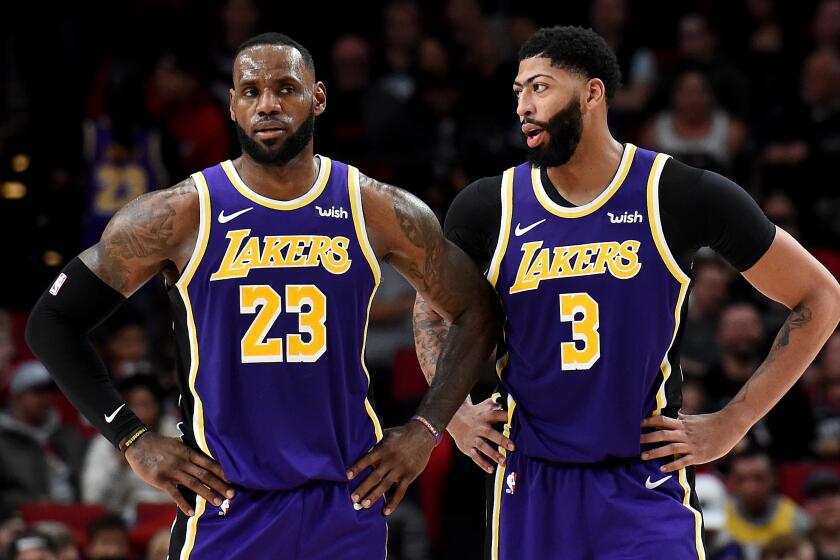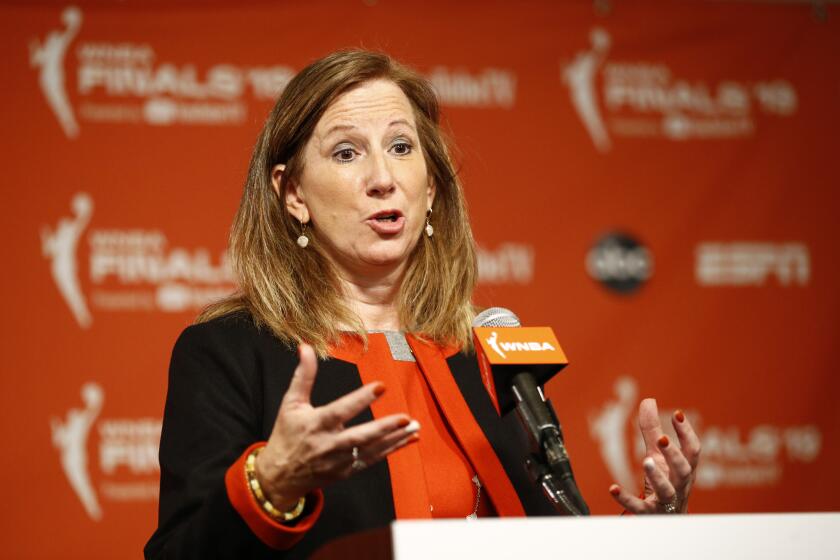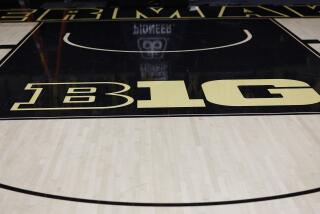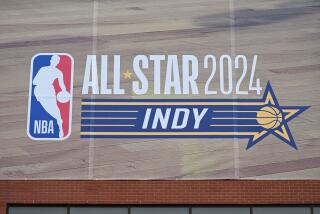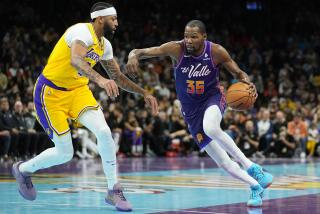The Basketball Tournament will offer a COVID-19 test sample for NBA
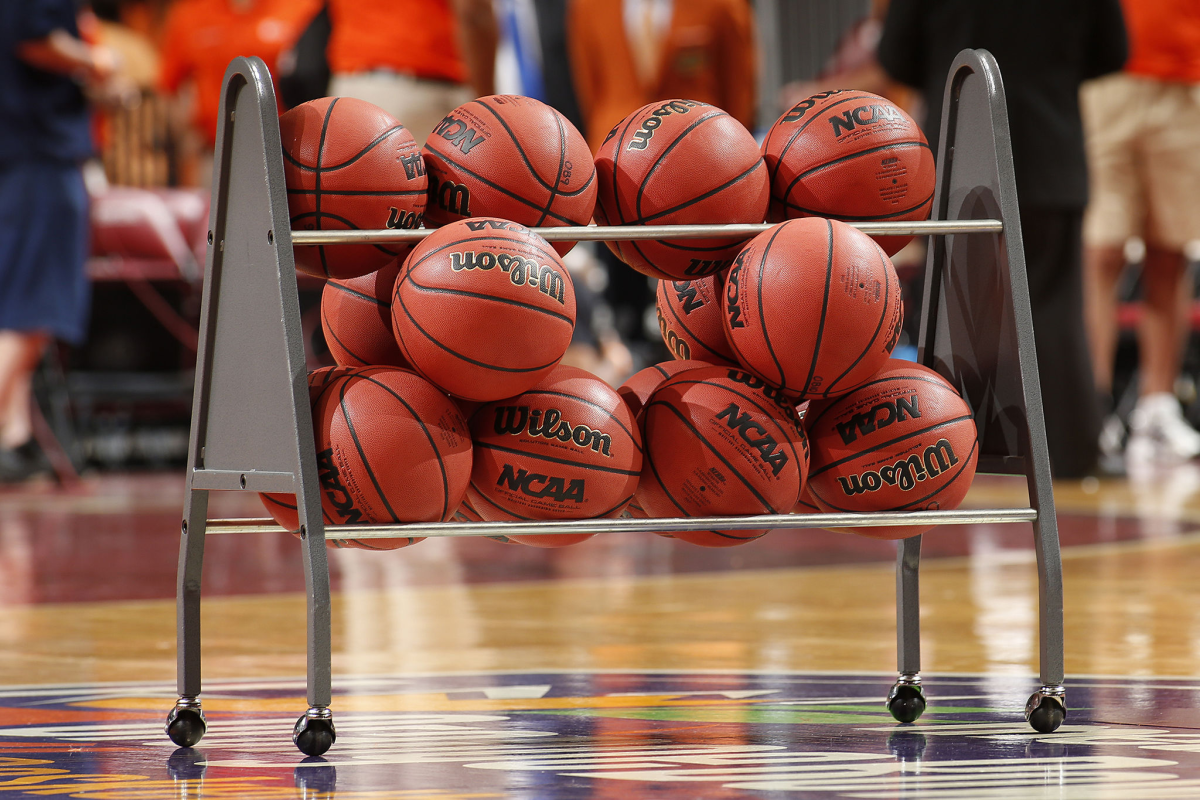
Earlier this spring, Sean Marshall reminded players on his team about the paperwork they would need to complete if they wanted to take part in this summer’s The Basketball Tournament, the single-elimination competition broadcast by ESPN that has grown in popularity since its founding in 2014.
There wasn’t much urgency behind the message though.
“I told my guys, ‘Just fill it out,’ ” Marshall said, “ ‘but I don’t think we’re going to play.’ ”
Considering how the COVID-19 pandemic had paused sports globally at the time, his was not an outlier opinion. By late May, though, he’d grown excited. Not only would The Basketball Tournament play in 2020, it would do so under its biggest spotlight yet.
When the tournament begins a 10-day run July 4 in Columbus, Ohio, it will be the first, live televised basketball played on U.S. soil since the pandemic stopped games in March, organizers say.
“It’s nice to have this exposure,” said Jon Mugar, the tournament’s founder. “But it’s also a tremendous amount of responsibility that comes with it that we’re feeling to be one of the first events out playing, one of the first contact sports playing in this environment.”
With Major League Baseball scheduled to start play July 23 or 24, the NBA scheduled to resume play outside Orlando, Fla., July 30 and the NHL yet to determine its restart date, The Basketball Tournament will become a test case for the safety of spectator-free contact sports played in quarantined conditions, though its single-elimination format makes the comparison to leagues resuming regular seasons imprecise. Losing teams will depart immediately, without returning to the hotel. The maximum stay in Columbus is 14 days.
“A single-elimination tournament eliminates so many ‘touch points,’ ” Mugar said.
His original plan called for 64 teams, a $2-million prize for the winning team, nine host cities and three weeks of competition. Precautions surrounding the pandemic are reflected in the new plan: 24 teams in one city playing for $1 million, in front of an ESPN audience but zero live fans — with everything governed by a league health and safety plan now in its 14th version.
Team members will be tested three days before they travel to Columbus, immediately upon their arrival and three and five days into quarantine. Vault, a private firm, is handling testing.
“Four consecutive negative tests for everyone on the team means that team is cleared for competition and will play,” Mugar said.
At staggered arrivals, an estimated 350 people are expected at the tournament, with seven-time NBA All-Star Joe Johnson, who will compete for four-time champion Overseas Elite, among them. Teams will stay at a quarantined hotel rented out entirely by the tournament and walk two blocks to the arena and adjacent practice courts. A single positive test by a team member will result in the removal of the entire team, Mugar said. Workers in the arena will wear masks.
“The whole reason we’re playing is we feel we can provide an event that minimizes risk as much as possible,” he said.
If the NBA season resumes it will do so in Orlando, Fla., in an uncertain, near-quarantine environment. A look at which teams that might favor.
The safety plan was designed in conjunction with a pandemic preparedness scholar at Baltimore’s Johns Hopkins Center for Health Security. Columbus Public Health officials worked with organizers, a spokesperson said, and state health officials also signed off, Mugar said. Feedback was also sought from team general managers. Marshall, a former Boston College guard from Rialto Eisenhower High who leads and plays for Team Challenge ALS, suggested players have their own rooms, rather than doubling up.
“Guys were a little concerned about the procedures they were going to take to keep everyone safe, but it really does sound like they have an unbelievable plan they put together to protect everyone,” he said. “I think everyone feels comfortable.”
The Basketball Tournament will also be a guinea pig for Ohio, which is attempting to incorporate live sports into its reopening. Gov. Mike DeWine has approved a limited number of mask-wearing spectators to attend the PGA Tour’s Memorial tournament, held July 16-19 in Dublin, a suburb of Columbus. DeWine, in a news release, hailed The Basketball Tournament as “another step forward in our state’s efforts to responsibly restart Ohio.”
The stakes are considerable, Mugar acknowledged.
“I’m an English major from Tufts, I just never expected to be in this position,” he said.
Yet he and fellow organizers have seen their ambitions rewarded.
A decade ago, Mugar was producing television in Los Angeles when he came up with the idea of selling TV networks on a nationwide, summertime hoops competition that would be open to almost anyone and award an eye-catching winner-take-all prize. By its second edition, in 2015, the field had expanded from 32 teams to 97 and the winner’s cash had doubled to $1 million.
Where former small-college players used to round out rosters, 59 former NBA players competed in last summer’s competition, which drew a combined audience of five million. Its credibility has been burnished by more established leagues. The NCAA adopted its celebration where winners move their team’s name up a giant bracket. In February, the NBA All-Star game adopted its Elam Ending, where teams play to a target score rather than a timed fourth-quarter finish, to glowing reviews from stars including the Lakers’ LeBron James and the Clippers’ Kawhi Leonard.
The WNBA announced plans Monday to play a shortened season with no fans present, starting in late July and ending with a championship in early October.
The tournament also recently agreed to a three-year extension with ESPN.
Marshall — who has played in Greece, Turkey and Germany as well as the NBA’s developmental league after going undrafted in 2007 — hopes a large, captive television audience will benefit ALS research and raise his teammates’ professional profiles. Given the dearth of other sports options, he expects scouts will be watching.
“I feel like everybody in the world will be watching regardless if they like basketball or not,” he said. “The world misses sports right now.”
More to Read
Get our high school sports newsletter
Prep Rally is devoted to the SoCal high school sports experience, bringing you scores, stories and a behind-the-scenes look at what makes prep sports so popular.
You may occasionally receive promotional content from the Los Angeles Times.

